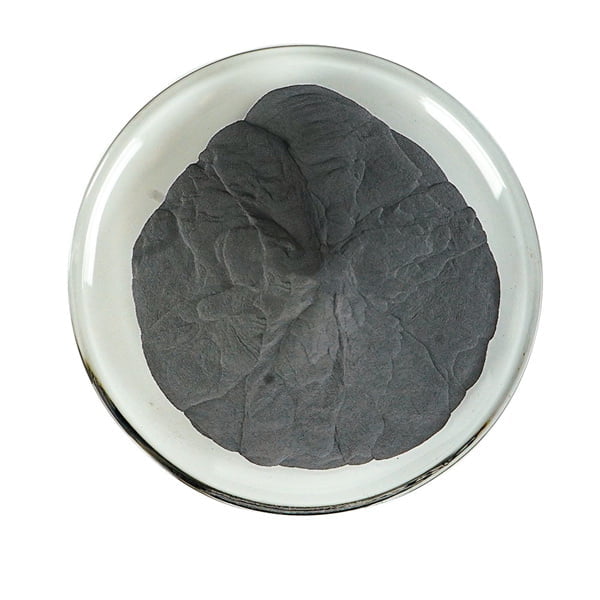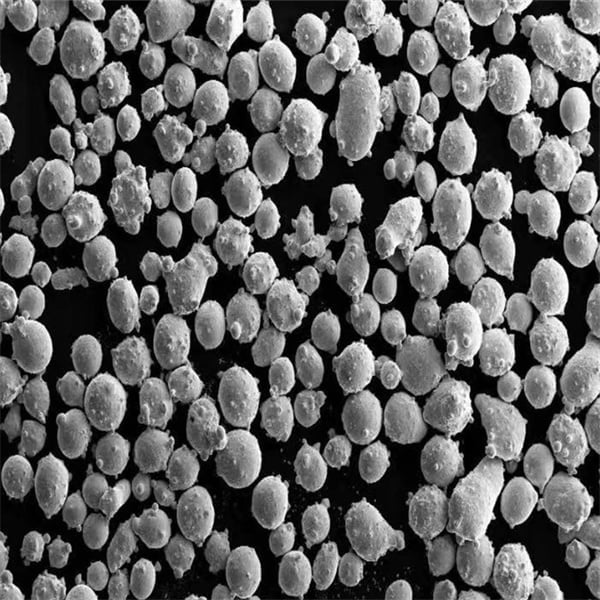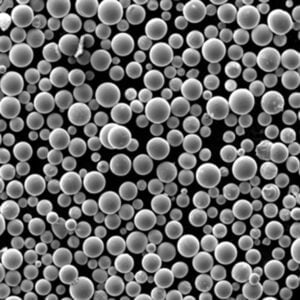Common Models of Titanium Alloy 3D Printed Metal Powder
Table of Contents
The world of 3D Printed Metal Powder has unveiled a new frontier: the manipulation of metal powders into intricate, functional objects. Imagine crafting a lightweight, super-strong component for your race car, or a biocompatible implant perfectly tailored to a patient’s needs – all from a bed of fine metallic dust. This isn’t science fiction; it’s the reality of metal additive manufacturing, and titanium alloys play a starring role in this technological revolution.
But with various titanium alloy powders available, choosing the right one can feel like navigating a labyrinth. Fear not, intrepid innovator! This guide will equip you with the knowledge to conquer the world of titanium alloy 3D printing powders.

Titanium Alloy 3D Printed Metal Powder:Ti6Al4V
When it comes to titanium alloy 3D printing powders, Ti6Al4V (Titanium 6 Aluminum 4 Vanadium) reigns supreme. This versatile material boasts an exceptional balance of strength, weight, and printability, making it the go-to choice for a wide range of applications.
Think of it like the Swiss Army knife of 3D printed metals. Need a component for a prosthetic limb that’s both lightweight and durable? Ti6Al4V steps up. Envisioning a high-performance aerospace part that can withstand extreme temperatures? This trusty alloy delivers. Even demanding applications in the automotive and medical industries rely heavily on Ti6Al4V’s dependable performance.
Here’s what makes Ti6Al4V such a champion:
- Strength-to-weight ratio: It boasts a remarkable strength-to-weight ratio, meaning it’s incredibly strong for its weight. Imagine a feather-light component that can handle immense pressure – that’s the magic of Ti6Al4V.
- Printability: This alloy exhibits excellent printability, meaning it flows smoothly during the 3D printing process, resulting in high-quality, consistent parts.
- Biocompatibility: While not the most biocompatible option on the list (we’ll get to that later), Ti6Al4V displays good biocompatibility, making it suitable for some medical applications.
However, Ti6Al4V does have some limitations to consider:
- Cost: Compared to other titanium alloy powders, Ti6Al4V can be on the pricier side.
- Ductility: It’s not the most ductile (bendable) titanium alloy, so applications requiring high flexibility might need to explore alternative options.
Applications: Aerospace parts, medical implants (some types), automotive components, sporting goods, consumer electronics.
Ti5Al2.5Sn: The Lightweight Contender
Ti5Al2.5Sn (Titanium 5 Aluminum 2.5 Tin) is another popular contender in the titanium alloy 3D printing arena. This material shines when low weight is the top priority. Think of it as the sleek, agile athlete compared to Ti6Al4V’s well-rounded strength.
Here’s why Ti5Al2.5Sn is a lightweight champion:
- Low density: Boasting a lower density than Ti6Al4V, Ti5Al2.5Sn translates to lighter components, making it ideal for applications where weight reduction is paramount. Imagine creating an aircraft component that sheds precious pounds, leading to improved fuel efficiency.
- Good corrosion resistance: Similar to Ti6Al4V, Ti5Al2.5Sn exhibits good corrosion resistance, making it suitable for environments where rust and deterioration pose a threat.
However, Ti5Al2.5Sn comes with its own set of considerations:
- Strength: Compared to Ti6Al4V, Ti5Al2.5Sn offers slightly lower strength. For applications demanding maximum structural integrity, Ti6Al4V might be a better choice.
- Printability: While still printable, Ti5Al2.5Sn can be slightly more challenging to work with compared to Ti6Al4V. This might necessitate adjustments in the 3D printing process for optimal results.
Applications: Aerospace components (particularly weight-sensitive parts), marine applications, biomedical applications (limited due to presence of tin).
Ti6Al2Sn4Zr2Mo: Pushing the Boundaries
Ti6Al2Sn4Zr2Mo (Titanium 6 Aluminum 2 Tin 4 Zirconium 2 Molybdenum) takes the performance of titanium alloy 3D printing powders to a whole new level. This advanced material boasts exceptional strength, high-temperature resistance, and improved creep resistance (resistance to deformation under stress at high temperatures).
Here’s what makes Ti6Al2Sn4Zr2Mo a high-performance champion:
- Exceptional strength: This alloy offers superior strength compared to both Ti6Al4V and Ti5Al2.5Sn. Think of it as the heavyweight champion of the titanium alloy world, perfect for applications requiring maximum load-bearing capacity.
- High-temperature resistance: Ti6Al2Sn4Zr2Mo exhibits exceptional resistance to high temperatures, making it ideal for components operating in scorching environments. Imagine a turbine blade in a power plant that endures intense heat without a whimper.
- Improved creep resistance: At elevated temperatures, some materials can slowly deform under constant stress. Ti6Al2Sn4Zr2Mo boasts superior creep resistance, making it perfect for applications where maintaining structural integrity under extreme heat is crucial.
However, there are some trade-offs to consider with Ti6Al2Sn4Zr2Mo:
- Cost: This advanced alloy comes with a heftier price tag compared to other options.
- Printability: Ti6Al2Sn4Zr2Mo can be more challenging to print than Ti6Al4V and Ti5Al2.5Sn. 3D printing professionals might need to fine-tune their processes to achieve optimal results with this material.
Applications: Aerospace components (particularly high-performance jet engine parts), oil and gas exploration equipment, military applications.
Pure Titanium: The Biocompatible Choice
For applications where biocompatibility reigns supreme, pure titanium powder takes center stage. This unalloyed metal offers excellent biocompatibility, meaning it can coexist peacefully with the human body without causing adverse reactions. Think of it as the gentle giant of the titanium alloy family, perfect for crafting medical implants that integrate seamlessly with the body’s tissues.
Here’s why pure titanium shines in biocompatibility:
- Superior biocompatibility: Pure titanium exhibits exceptional biocompatibility, making it the preferred choice for medical implants like hip replacements and dental screws. The human body readily accepts pure titanium, minimizing the risk of rejection and inflammation.
- Good corrosion resistance: Similar to other titanium alloys, pure titanium offers good corrosion resistance, ensuring the longevity of medical implants within the body.
However, pure titanium comes with its own set of considerations:
- Strength: Compared to titanium alloys, pure titanium offers lower strength. For load-bearing implants, titanium alloys might be a better option.
- Printability: While printable, pure titanium can be trickier to work with compared to some titanium alloys. 3D printing professionals might need to make adjustments to achieve optimal results.
Applications: Medical implants (hip replacements, dental screws, etc.), biocompatible components for the human body.

FAQ
Here’s a quick reference table to address some common questions regarding these titanium alloy 3D printing metal powders:
| Feature | Ti6Al4V | Ti5Al2.5Sn | Ti6Al2Sn4Zr2Mo | Pure Titanium |
|---|---|---|---|---|
| Strength | High | Moderate | Very High | Moderate |
| Weight | Moderate | Low | Moderate | Low |
| Printability | Excellent | Good | Moderate | Good |
| Biocompatibility | Good | Not ideal (presence of Tin) | Not ideal (presence of Tin & Zirconium) | Excellent |
| Cost | Moderate | Moderate | High | Moderate |
| High-Temperature Resistance | Good | Good | Excellent | Good |
| Creep Resistance | Moderate | Moderate | Excellent | Not applicable |
| Applications | Aerospace, Medical (some types), Automotive | Aerospace (weight-critical), Marine | Aerospace (high-performance), Oil & Gas, Military | Medical Implants |
Remember, this table provides a general comparison, and the optimal choice for your 3D printing project depends on your specific requirements.
This guide has hopefully equipped you with the knowledge to navigate the world of common titanium alloy 3D printing powders. As technology continues to evolve, we can expect even more innovative materials to emerge, pushing the boundaries of what’s possible in the realm of metal additive manufacturing. So, stay curious, keep exploring, and unleash the potential of 3D printing with the perfect titanium alloy powder for your project!
Share On
MET3DP Technology Co., LTD is a leading provider of additive manufacturing solutions headquartered in Qingdao, China. Our company specializes in 3D printing equipment and high-performance metal powders for industrial applications.
Inquiry to get best price and customized Solution for your business!
Related Articles
About Met3DP
Recent Update
Our Product
CONTACT US
Any questions? Send us message now! We’ll serve your request with a whole team after receiving your message.

Metal Powders for 3D Printing and Additive Manufacturing
COMPANY
PRODUCT
cONTACT INFO
- Qingdao City, Shandong, China
- [email protected]
- [email protected]
- +86 19116340731

















